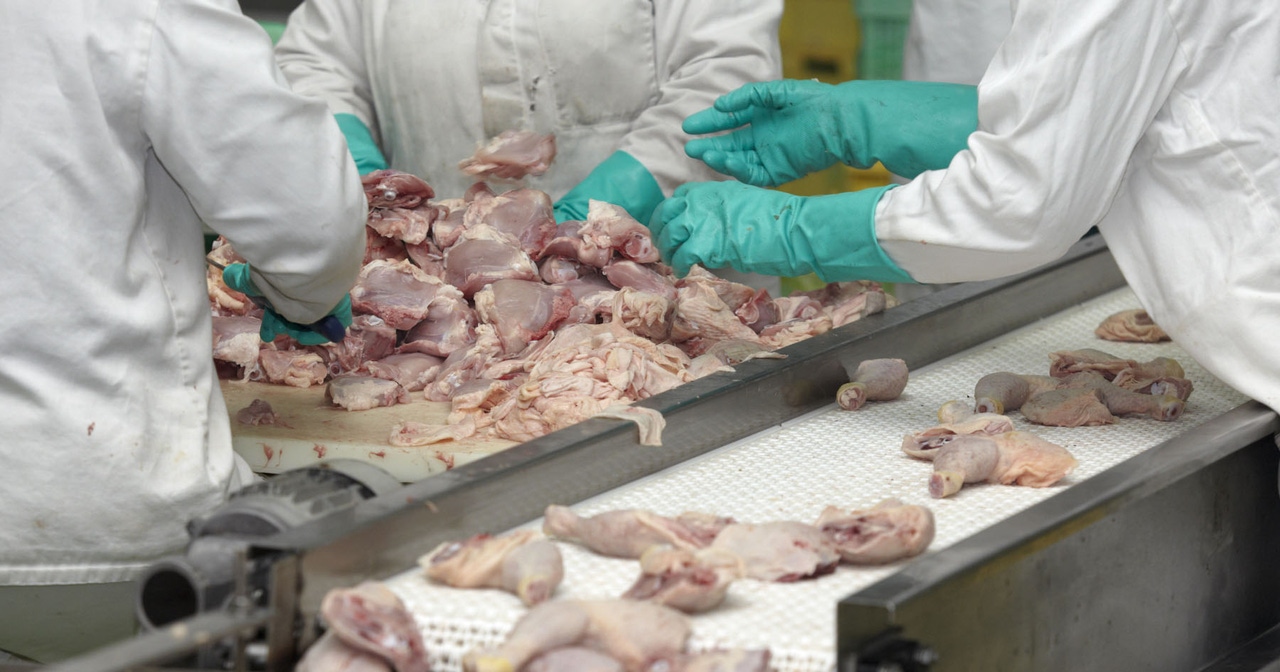Meat Producers Call for Priority COVID Vaccine AccessMeat Producers Call for Priority COVID Vaccine Access
Trade groups seek priority vaccine distribution to meat industry workers. Existing COVID-19 protocols would let meatpackers administer COVID-19 vaccinations "in an orderly and efficient fashion," meat groups say.

Three leading meat-industry trade groups are asking U.S. governors to prioritize COVID-19 vaccine access for meat workers, saying that doing so would help ensure the health of a sector critical to the country's infrastructure.
In a letter sent to governors on Dec. 4, the North American Meat Institute, the National Cattlemen's Beef Association (NCBA) and the National Pork Producers Council (NPPC) said that throughout the COVID-19 pandemic, meat and poultry processing workers and livestock producers "have been on the front lines ensuring Americans have access to safe, nutritious and affordable food."
The Department of Homeland Security in March designated the food and agriculture industry as one of 16 critical infrastructure sectors, stating in an advisory guidance issued at the time that workers in critical sectors "have a special responsibility to maintain [their] normal work schedule."
Given their front-line status, meat and poultry industry workers should be given "very high priority" after healthcare workers and certain other high-risk individuals when it comes to obtaining COVID-19 vaccinations, the trade groups assert. Furthermore, because of the virus mitigation protocols and programs put in place at the country's meatpacking facilities, these facilities are "in an ideal position to administer the vaccine to many people in an orderly and efficient fashion," the letter to governors states.
"Such prioritization would allow the utilization of an existing system to deliver the vaccine to a significant and important part of the workforce," the Meat Institute, NCBA and NPPC write.
Meatpacking facilities have emerged as COVID-19 hot spots in several states, with workers' close proximity to one another thought to have contributed to disease spread especially early on in the pandemic, before many plants implemented greater physical distancing/physical barriers between workers. In May, the Centers for Disease Control and Prevention (CDC) reported that 18% of workers in beef and pork processing plants in Iowa and 17% in South Dakota had tested positive for COVID-19 as of late April.
In November, the American Civil Liberties Union and meatpacking workers in Nebraska sued Noah's Ark Processors, alleging that the company's Hastings, Neb., beef processing plant is a public nuisance and has failed to provide adequate worker protections, including physical distancing and on-site testing. The lawsuit's filing came the week after Tyson said it had suspended employees involved in accusations that managers at an Iowa pork plant had taken bets on how many workers would contract COVID-19.
On Monday, Foster Farms reopened its poultry plant in Fresno, Calif., after a weekend of deep cleaning following an outbreak in which 193 workers tested positive for COVID-19 in a two-week span. The Sacramento Bee reported that a Foster Farms spokesperson said all of the affected workers were asymptomatic.
As of Dec. 8, according to a COVID-19 dashboard maintained by the New York-based not-for-profit Food and Environment Reporting Network, 551 meatpacking facilities across the country have had confirmed COVID-19 cases, with more than 50,000 meatpacking workers testing positive for the disease.
Meat processors' response since spring to a changing COVID-19 landscape has included spending "more than $1 billion on procedures and controls to both support and protect employees," according to the industry groups' petition to governors. "These measures include physical adaptations to facilities, personal protective equipment, enhanced sanitation, advanced ventilation systems, extensive testing and contact tracing, enhanced health care services, and more," the letter states.
About the Author
You May Also Like






